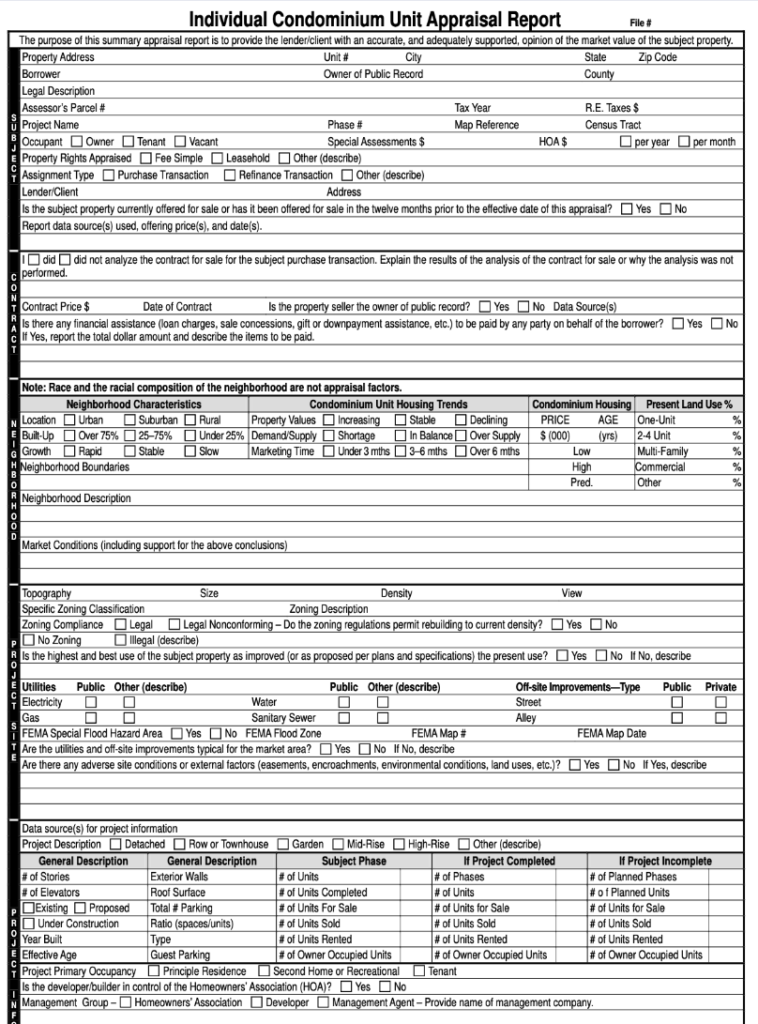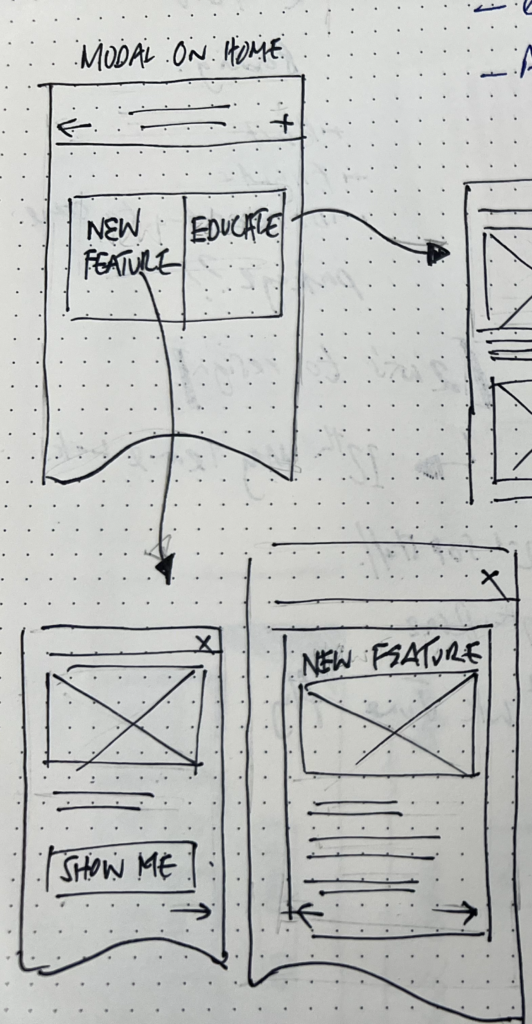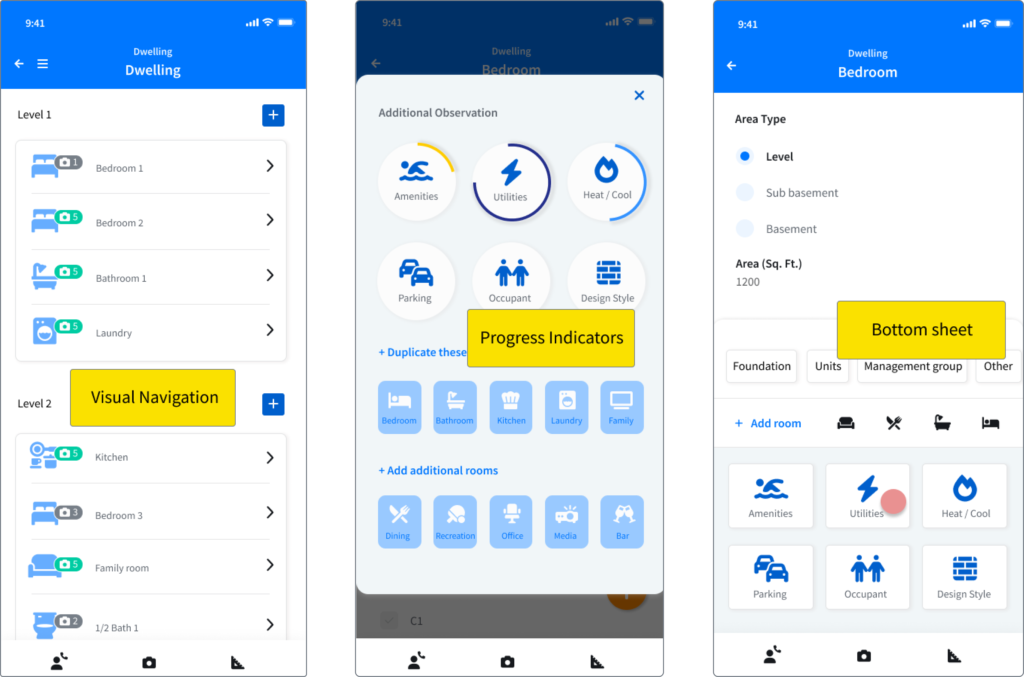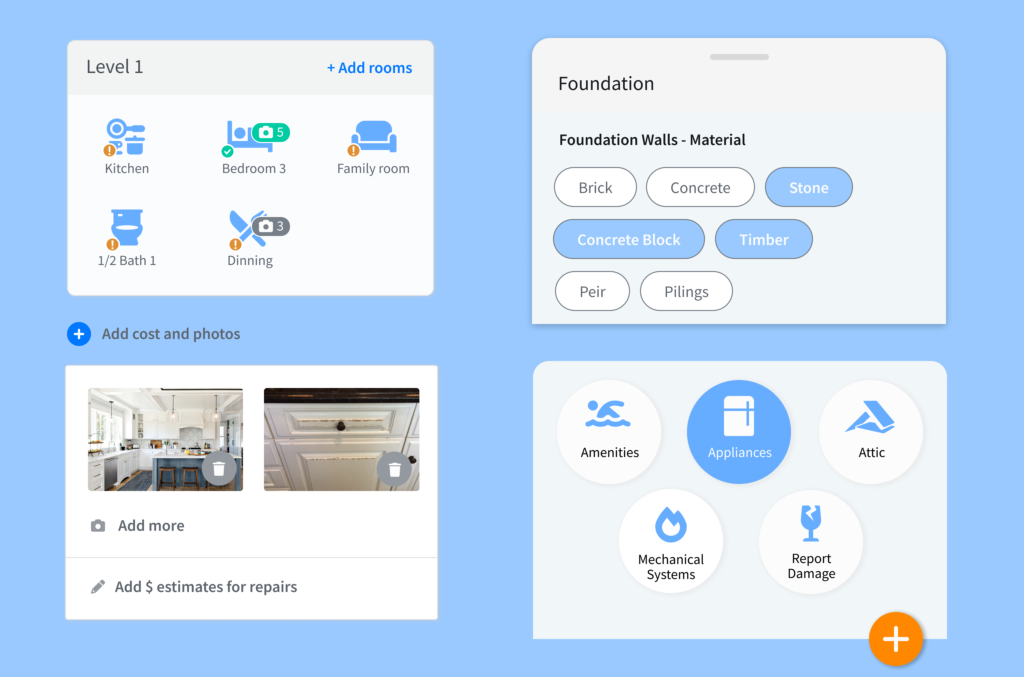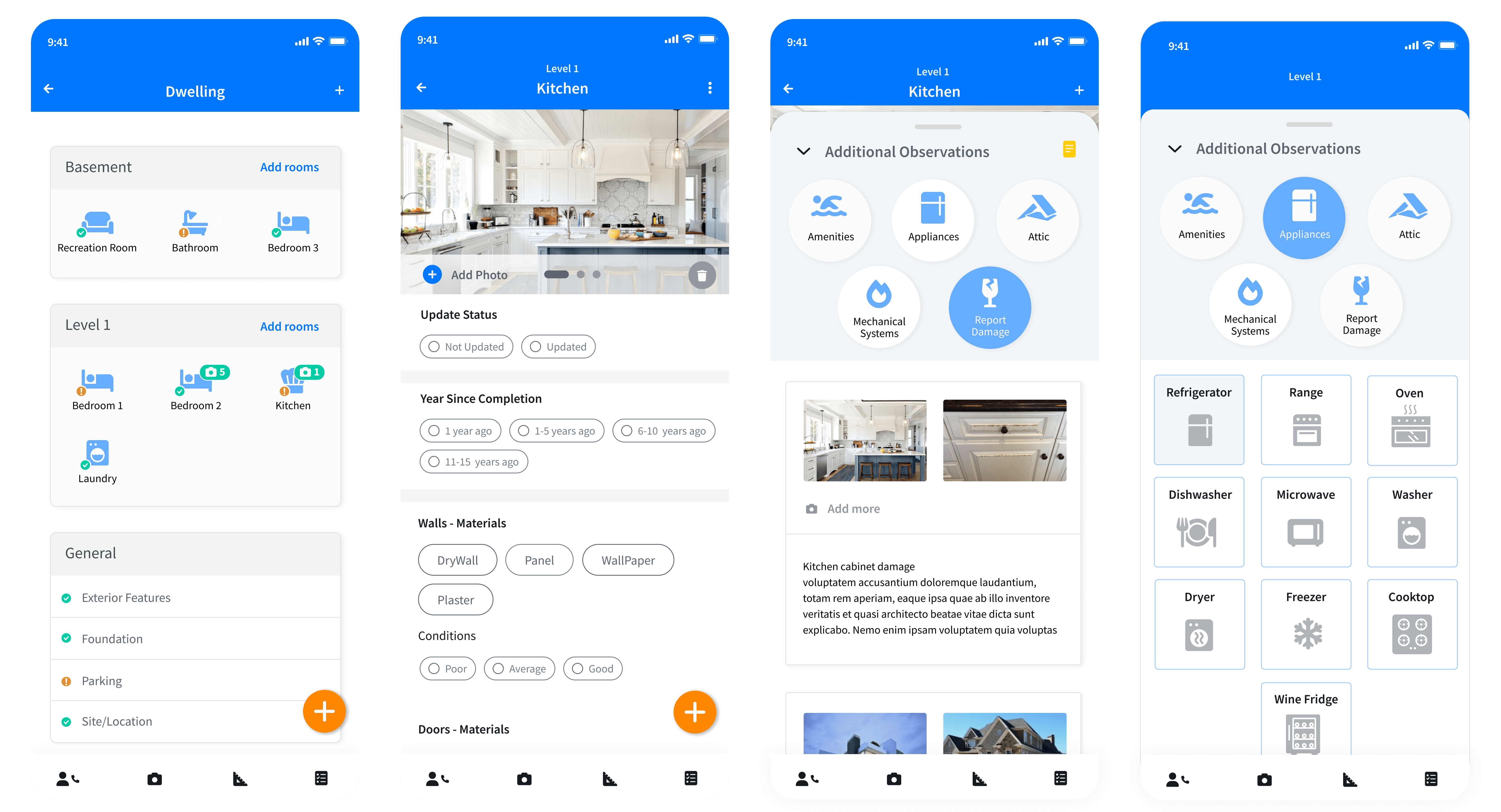
Jaro house appraisal
Streamlining house appraisals by addressing pain points and optimising data gathering. Valuators assess land factors, creating a need for an efficient process.
Objective
To streamline the house appraisal process and address pain points experienced during property valuations, it’s essential to understand the valuator’s perspective. For instance, during an assessment, the valuator behaves similarly to a prospective buyer, carefully evaluating the property’s land based on factors such as topography.
Goal
Facilitating appraisals that are both quick and accurate, reducing time or improving precision, and presenting these within a clean, intuitive interface..
Process
Users provided weekly feedback, ensuring a consistent flow of insights. This feedback was gathered primarily through working prototypes, workshops, and workflow mock-ups.
Artefacts:
- Analysis of app structure
- Pain points and frustration
- Early flow plan
- Output from user workshops
- Wireframes
- Redesigned screens
73%
Of appraisers provided feedback during the initial testing phase
32
Feedback sessions conducted with appraisers in the field.
App structure analysis
A review of the app structure created a clear, logical navigation system, showing relationships between screens to ensure users could easily find what they need. The audit helped the team organize content in an intuitive, user-friendly way.
Old app UI issues
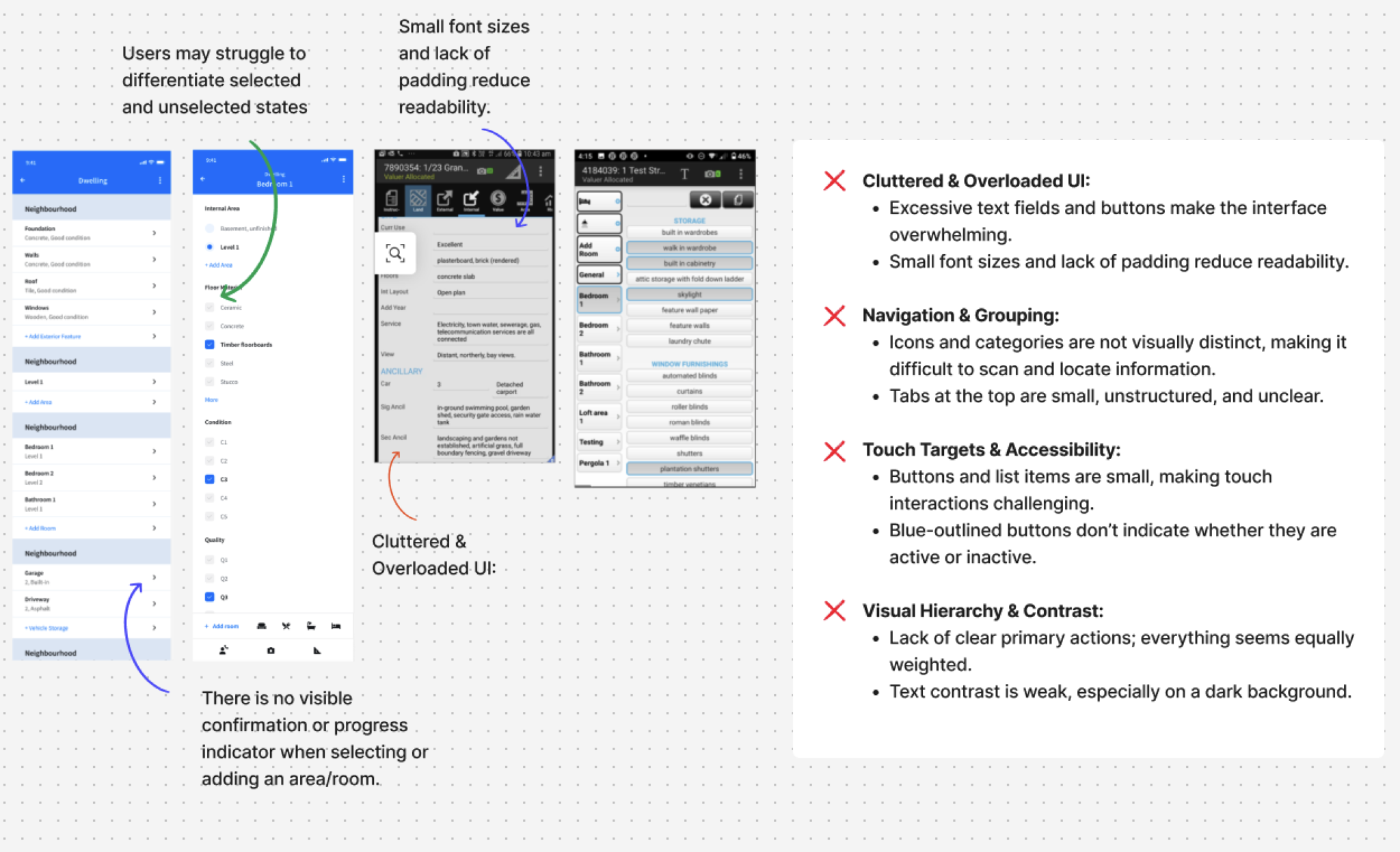
Challenges and obstacles
Business challenges
- Excessive sub-levels and unclear workflow length
- Long scrolling screens, Users feeling disorientated
- Confusing workflows
- Streamline data collection for faster, accurate field appraisals
- Enable smooth context switching without workflow disruption
- Present data intuitively for improved user productivity
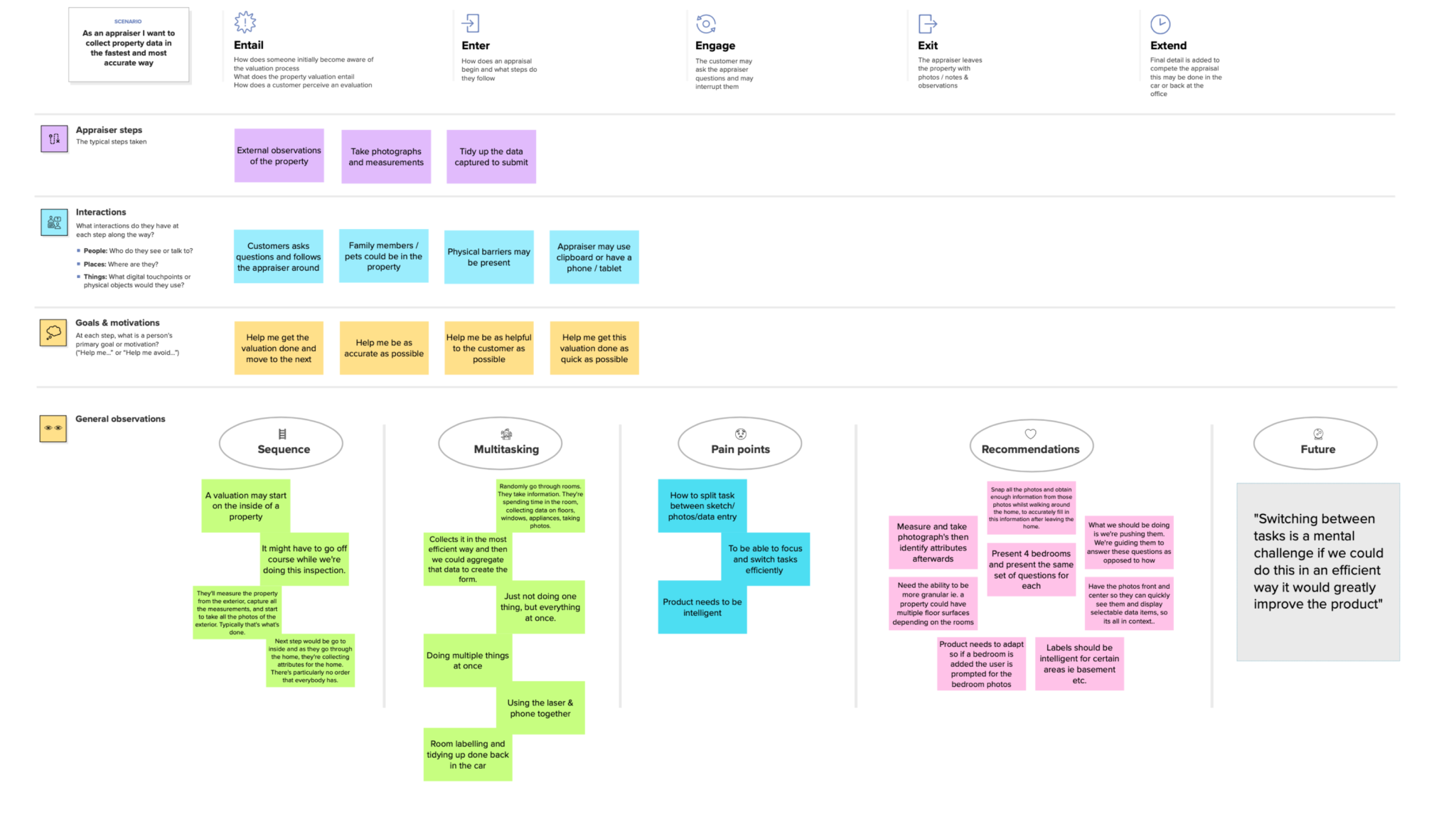
"Appraisal times need to be reduced, 1hr 30 mins is the current time taken"
Output from user workshops
The aim of the workshop was to improve the user experience by identifying user needs, pain points, and opportunities, and to better align with the group. The main findings of the workshop were:
-
Appraisers faced frequent interruptions while capturing large
amounts of data in the field -
Frequent context switching required an interface designed for
seamless transitions -
The appraisal process had varying steps, requiring a flexible
and adaptable workflow
Validating ideas
Flow diagrams and prototypes were used to test scenarios and validate design decisions, ensuring stakeholder and wider group buy-in. This included every interaction users had with the product, from a modal and date picker to a bottom sheet.
Wireframe design concepts
-
Appraisers faced frequent interruptions while capturing large
amounts of data in the field -
Frequent context switching required an interface designed for
seamless transitions -
The appraisal process had varying steps, requiring a flexible
and adaptable workflow
Final screens
Sketch floor plans and appraisal supporting questions
Learnings and next steps
In conclusion, the redesigned app offered a more user-friendly and visually appealing experience for users. Through extensive research and testing, pain points were identified and improvements made, ultimately leading to a more seamless user journey. The new design incorporated modern intuitive navigation, which enhanced user engagement and satisfaction. Appraiser evaluation times were significantly cut from roughly 1hr 30 minutes to 35-45 minutes. Finally, feedback from quality control was a substantial improvement in the quality and accuracy of data from appraisers.

